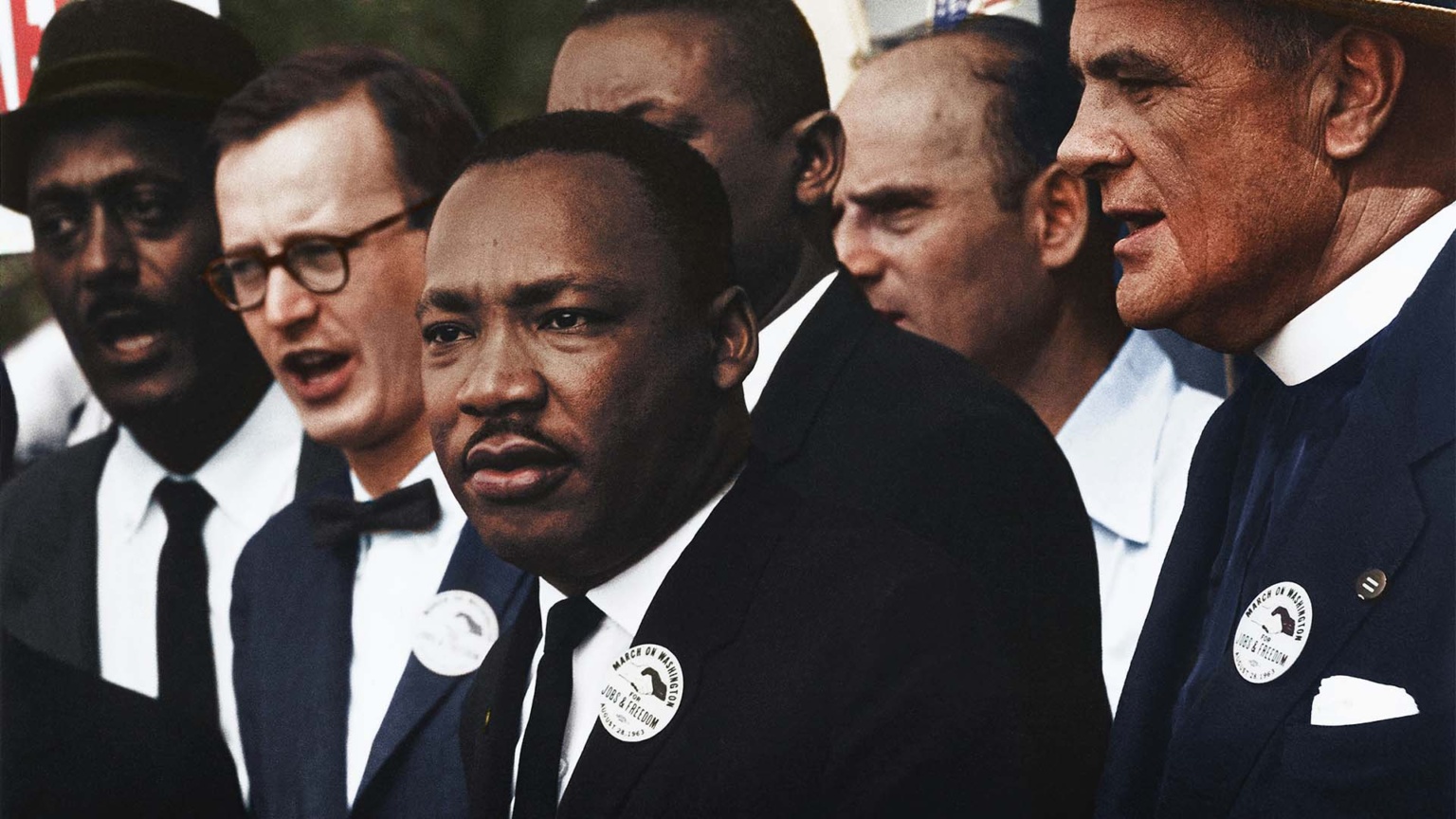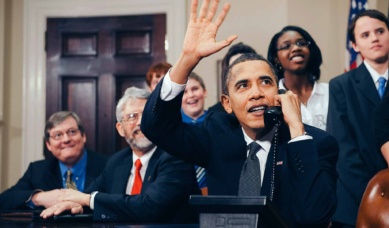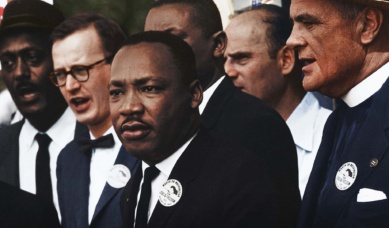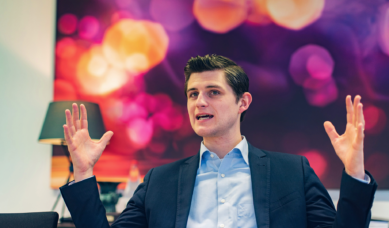- Blog, Presentation Training, Public Speaking
What Made Martin Luther King Jr’s Famous Speech so Powerful?

Read this quick article to learn how you can use Martin Luther King Jr’s speech to level up your public speaking game.
Martin Luther King Jr. is celebrated not only for his tireless activism in the civil rights movement but also for his remarkable skill in speechwriting and public speaking. His ability to craft powerful messages and deliver them with eloquence and passion captivated audiences around the world. In this exploration, we delve into the genius behind King’s speechwriting and the mastery of his public speaking techniques, uncovering the artistry and impact that made him one of history’s greatest speakers. By dissecting King’s speech, we’ll uncover the essence of what elevated King’s speech to a pivotal moment in history, and how you can elevate your public speaking skills.
1. Powerful Imagery and Visionary Language
Martin Luther King Jr.’s “I Have a Dream” speech was a masterpiece of vivid imagery and visionary language. He didn’t just talk about civil rights; he painted a picture of a future where racial discrimination was eradicated and equality prevailed. For example, when he spoke of his dream that “one day this nation will rise up and live out the true meaning of its creed: ‘We hold these truths to be self-evident, that all men are created equal,'” he conjured an image of a society where everyone, regardless of race, would be treated with dignity and respect. By using metaphors and symbolism, King made his message relatable and inspiring, ensuring that his words resonated deeply with his audience.
2. Repetition for Emphasis and Memorability
Throughout his speech, Martin Luther King Jr. used strategic repetition to emphasise key points and to drive his message home. The refrain “I have a dream” served as a powerful rallying cry, repeated multiple times throughout the address. Each repetition reinforced the central theme of hope and unity, making his words both memorable and impactful. By hammering home his message with repetition, King ensured that his audience would not only remember what he said but also feel its emotional weight long after the speech had ended.
3. Rhythmic Delivery and Verbal Flourishing
King’s delivery style was characterised by rhythmic cadences and verbal flourishes, reminiscent of the African American preaching tradition. He used pauses, changes in tone, and passionate inflections to captivate his audience and maintain their attention throughout his speech. For example, when he declared, “Now is the time to rise from the dark and desolate valley of segregation to the sunlit path of racial justice,” his rhythmic delivery and dramatic pause before “racial justice” underscored the importance of the moment and added weight to his words. By harnessing the power of oratory, King commanded the attention of millions and inspired them to join the fight for civil rights.
4. Appeal to Emotion and Shared Values
Martin Luther King Jr. skillfully appealed to the emotions of his audience, tapping into their deeply held values of justice, freedom, and equality. He didn’t just present facts and figures; he spoke from the heart, sharing his own experiences and connecting with his listeners on a personal level. For example, when he spoke of his dream that “little black boys and black girls will be able to join hands with little white boys and white girls as sisters and brothers,” he evoked feelings of empathy and solidarity among his audience. By appealing to their emotions and shared values, King fostered a sense of unity and common purpose, galvanising support for the civil rights movement.
5. Call to Action and Inspirational Leadership
King concluded his speech with a powerful call to action, urging his audience to continue the struggle for freedom and equality. He didn’t just inspire with lofty ideals; he challenged his listeners to take concrete steps towards realising those ideals in their own lives and communities. For example, when he declared, “Let us not wallow in the valley of despair, I say to you today, my friends,” he urged his audience to reject despair and instead embrace hope and determination. By providing a clear call to action, King empowered individuals to become agents of change, to stand up against injustice, and to work towards building a more just and equitable society.
In all of history, few figures stand as tall in the realm of speechwriting and public speaking as Martin Luther King Jr. His words were not merely spoken; they were imbued with a rare blend of moral clarity, emotional resonance, and rhetorical brilliance. Through his speeches, King moved hearts, stirred souls, and inspired action, leaving an indelible mark on the course of human history. As we reflect on his legacy, let us marvel at the power of his words and draw inspiration from his example, recognising that in the hands of a masterful orator, speechwriting becomes a force for change and a beacon of hope for generations to come.
If you’d like to learn how to write any speech lightning fast, without starting from scratch, CLICK HERE to check out our ‘Art of Speechwriting’ online video course.
Other related articles.
How to captivate your audience
5 Key Business Lessons From Hit Show ‘Bluey’
How to Close More Sales With Social Selling
Leadership Lessons from Obama’s Pivotal Moment
How to Build Buyer Trust – Part 2
Unlocking Sales Success: Harnessing AI to Close More Deals
5 Tips for your next sales discovery calls
5 Cognitive Biases Every Salesperson Should Master
What Made Martin Luther King Jr’s Famous Speech so Powerful?
How to Use Your Hands Effectively When Giving a Speech
Explorer Mike Horn’s Key for Productivity
Trevor Ambrose is an international training and coaching company located in the Gold Coast in Australia. We focus on sales and public speaking training.




























